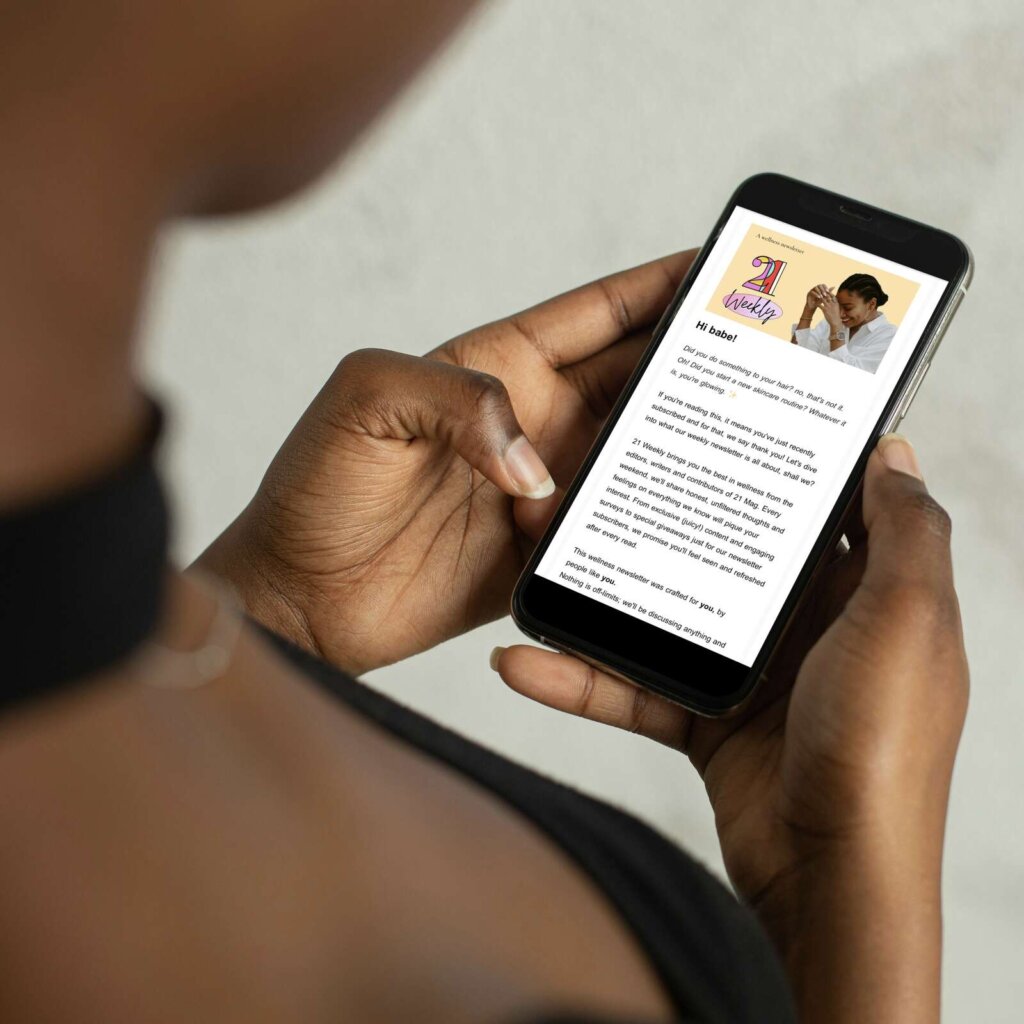It was supposed to be a fairytale. When Rebecca Ifeme, a Mass Communications student at the University of Nigeria, Enugu, was randomly approached by the philanthropist Asherkine, she had no idea she was about to live through a nightmare. Asherkine, known for his viral acts of kindness, treated her to a day of luxury: shopping sprees, fine dining, and pampering. The resulting video was pure, uncomplicated joy—a young woman, through sheer luck, experiencing a moment of blissful escape. It was the kind of content that should make you smile.
But then men on the internet did what it so often does to happy women: it sought to burn her down.
Almost immediately after the video surfaced, a man named Emmanuel Ugochukwu Ezeh emerged from the digital shadows. On an X account created in May 2024 with fewer than 50 posts, he began weaving a toxic and entirely fabricated narrative. He posted a story to a “boys’ community” on the platform, a space notorious for its misogynistic undertones and coordinated bullying.

His lie was as damaging as it was simple: he claimed Rebecca was his girlfriend. He alleged he had been paying her school fees. He feigned heartbreak, accusing her of denying their relationship on camera so she could be spoiled by another man. To make his fiction believable, he used AI to generate images of them together and faked screenshots of a confrontation.

The lie didn’t need to be good; it just needed to be aimed at the right target: A Woman. Without a shred of verification, a digital mob of men formed. Thousands of men, fueled by a bizarre sense of vicarious betrayal, descended upon Rebecca. They flooded her social media with insults, threats, and accusations. A 21-year-old whose only “crime” was being the lucky beneficiary of a kind act was now the subject of a vicious, coordinated character assassination. Her moment of joy had been violently reclaimed and twisted into a public shaming.
Rebecca’s story, while horrifying, is not an anomaly. It is simply the latest, most visceral chapter in a long and tiresome tale about policing female happiness.
Look closely, and you’ll see the pattern everywhere
It’s an insidious, almost reflexive reaction from certain corners of the internet whenever women find joy, especially in things created by and for them.
Think about the term “slay queen.” Women adopted it with enthusiasm, a fun and harmless label for feeling confident and celebrating their fashion sense. It was a badge of collective, glamorous fun. Then, the word was hijacked. Men began using it as a pejorative, twisting it to mean a woman who is vapid, unintelligent, and obsessed with appearances to the detriment of all else. A word born from female joy was poisoned and weaponized against them.
Think about how women who travel often, especially those who share polished vacation content, are treated online. They’re instantly cast as unserious, labelled “slay mamas,” or accused of being sponsored by men. A woman shares a curated highlight reel of her solo trip to Italy, and suddenly the question is: who’s funding her lifestyle? The assumption isn’t that she saved, planned, or earned it; it’s that her joy must come with strings attached.
Even deep platonic friendships between women aren’t spared. When women center each other, whether by going on trips, building chosen families, or prioritizing their friendships, the reaction is usually weird. People joke that they must be dating or question why they’re avoiding men. The idea that women can find fulfilment, intimacy, and joy in one another’s company without romantic or male involvement makes many people uncomfortable. It challenges the narrative that male presence is essential to a woman’s happiness.
This gatekeeping of joy extends deep into pop culture. For years, men mocked women for watching K-dramas, dismissing the entire genre as sentimental fluff. They rolled their eyes at the global phenomenon of BTS, painting their female fans (the ARMY) as hysterical and unserious. Then Squid Game came out. Suddenly, it was peak television. It was gritty, it was different, it wasn’t really a K-drama, they argued, desperately creating a loophole that allowed them to enjoy a Korean show without aligning themselves with a “feminine” interest.
The hypocrisy is breathtaking. The same men who call female stans “crazy” for their devotion to an artist will paint their faces, riot, and scream themselves hoarse over 22 men kicking a ball on a field. A man’s passion for football is seen as a legitimate, communal experience. A woman’s passion for a musician is dismissed as trivial obsession.
It happens with softer, more personal interests, too. How many times have you seen a woman’s interest in astrology and horoscopes belittled as a silly, childish fantasy? It’s treated as proof of female irrationality. Yet, these same critics often see no issue with their own superstitions—lucky jerseys or unwavering faith in a stock market that is, itself, a complex system of belief and speculation. The issue is not the belief itself, but the fact that it is a space where women find community, meaning, and fun without male validation.
So, why does this happen? Why is women’s collective joy met with such suspicion, mockery, and sometimes, outright hostility?
Joy is a form of autonomy. A woman who is happy on her own terms, finding pleasure in things that don’t center men, is a woman who cannot be easily controlled. To ridicule her interests is to attempt to shrink her world, to make her feel small for the things that make her feel big.
Or perhaps it’s rooted in a zero-sum worldview, where a woman’s happiness is perceived as a direct loss for men. Emmanuel Ezeh didn’t just see a happy woman in that video; he saw an opportunity that wasn’t his. And if he couldn’t have it, his instinct—and that of his thousands of online co-conspirators—was to destroy it.
Whatever the reason, the outcome is the same. It creates an environment where women are conditioned to second-guess their happiness, to hide their interests, and to brace for impact every time something good happens.
But the story of Rebecca, and of every woman who has had her joy policed, cannot end with the mob. The antidote to this pervasive negativity is to be even louder with our joy. We must protect it, not just for ourselves, but for each other. Watch your K-dramas, stan your artists, analyze your birth chart, and call yourself a slay queen if you want to.
Let them be averse. Let them crash out in the comments section. Our happiness does not require their permission, and we will not let their bitterness steal our light.







